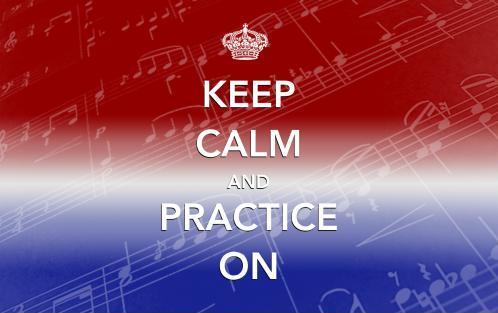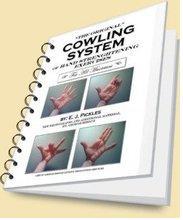Deliberate Practice:
Write Down Your Goals.

DELIBERATE PRACTICE:
The Power of Taking Notes
Here's a great piece of advice on how to optimize deliberate practice, from Paul Kleff, virtuoso guitarist, and others - It is this: write down your musical goal[s].
This is more effective than merely "thinking about" them or "visualizing" them. Why?
The act of writing it down is the first step to actually accomplishing the goal, it gives you a 'solid', 'real' thing to aim for and to organize your efforts around 'out there'. If it remains in your head, the odds are that it will just continue to stay in your head.
Another benefit of writing it down is that it can "automatically" produce ideas about HOW to reach the goal. You look at what you have written, and the 'bridging' ideas start coming, in other words what you should do to "get from A to B." Then you write THOSE ideas down, of course.
So, I took Paul's advice and this is what I came up with as an example [which I'm also following myself, by the way]
-----------------------------
1] GOAL: TO BE ABLE TO PLAY WHAT I HEAR IN MY HEAD, AT WILL. [Actually, I don't know of any musician who doesn't have this as a goal.]
2] HOW TO ACCOMPLISH THIS GOAL
00] Break this into two broad categories: "BUILD MY EARS" [ear training/sight-singing/musical dictation] and "BUILD MY HANDS" [scales/arpeggios/runs/all sorts of exercises, technique studies and drills]. These will naturally overlap in various circumstances.
0] Research and adopt most effective practice strategies - [For our purposes here, we've established Deliberate Practice as the foremost overall strategy .]
a] Find and implement exercises that impart the knowledge and skill to instantly know where all the notes are on your instrument. [usually scales, arpeggios, etc., but also studies in 'riffs' and 'licks' if appropriate for your genre. There is also lots of training software which facilitates this.]
b] [This is my personal tactic] If you can at all, SING the notes of the exercises as you play them - this reinforces pitch recognition and muscle memory simultaneously, making the results more swift and certain.
c] Investigate and test out methods of 'body work' for musicians [yoga, Alexander Technique, Feldenkrais [I'm curious about this], and The Cowling System [this is a great warmup routine] so as to maximize facility and also avoid stress and injury.
d] [as appropriate for your genre] Learn songs: This will provide 'structural' knowledge of music which will further your ability to execute your own ideas. Also, whether you are intending to become a songwriter or not - write songs.
I found that that gives one 'hands-on' knowledge on theory and construction of dynamics of music. And writing songs has the added benefit of habituating you to getting music OUT of your head, not merely "in".
-----------------------------
See how this can work? Frankly, making a compact list like the above - and getting each step done - is a really cool way to manifest your goals! Try this and let me know how you do!
GOOD LUCK!
[More to come on the methodology of goals, setting them and reaching them!]
More Deliberate Practice resources:
"DP" PART THREE - "IT'S NOT HOW MUCH, IT'S HOW"
"DP" PART FOUR - "DP" & SELF-TRAINING
Also, to help you get started on this right away, here are more great deliberate practice resources for you to investigate:
THIS "SECRET METHOD" TO INSTRUMENTAL MASTERY HAS BEEN "HIDDEN IN PLAIN SIGHT" FOR OVER A CENTURY!
But now, it has been REDISCOVERED! And YOU can enjoy the amazing benefits of it:
This Method Book Can ABSOLUTELY "Supercharge" YOUR Practice Routine - on ANY Instrument!
Find out more, or:
Buy It NOW On Amazon [Physical Paperback]:
or:
Get the PDF by clicking here:
"I’ve been playing a long time and really want to take my speed and accuracy to the next level! The first lesson...WOW! I’m a believer!!" ~ Will Suddeth, March 2020
And the accolades continue: David Grisman [above] uses "The Original" Cowling System:
DOWNLOAD "THE ORIGINAL COWLING SYSTEM©" -- PDF "E-BOOK" - 70 pages [$22.50 via PAYPAL secure]
THE SOFTCOVER PHYSICAL BOOK IS BACK IN PRINT! - Available at Amazon.
And still more [actual and unsolicited] rave reviews for "The Original" Cowling System:
-----------------
FROM A VIOLINIST:
"The Cowling System © is a set of 12 exercises designed to increase the flexibility and strength of the hand, wrist, and fingers.
"I bought the course in 1978 and have found them to be invaluable.
"I've kept them all these years and still use them to warm up with before playing."
~ Richard Barton posted on VIOLINIST.COM
-----------------
FROM A BASS PLAYER:
?"My fingers actually DO what my brain tells them to do, WITHOUT getting confused."
~ Anthony Jerome Smith, 35-year veteran bass player.
-----------------
FROM A PIANIST:
"In 1976, my teacher gave me his copy of all the exercises, whereupon I made xeroxed pages to put in a binder.
"My teacher was amazed at my progress that in a year I could play, for example, the prelude #17 of Chopin!
~ "RPN58" (from a pianists' discussion board in England, 2006)
-----------------
FROM A GUITARIST:
"I was introduced to the Cowling System © in the 1980's by a violinist in his seventies, who had amazing dexterity on his instrument for HIS age.
"Through the use of the COWLING SYSTEM ©, I went from "amateur" to an "A" level in music in a very short number of years.
"I have been using the exercises continuously since my friend gave them to me and believe me - THEY WORK."
~ Don Wills Guitarist, Great Britain
-----------------
FROM A VIOLINIST:
"I must say I am highly delighted with the way my fingering has improved since I commenced your hand strengthening exercises.
"Recently, I became very depressed about my playing and almost decided to give it up, but now I feel it's a pleasure, thanks to the Cowling System. ©"
~ "THE VIOLINIST" Magazine, December, 1924
I'd love to see YOUR testimonial on this list! If you really do "THE ORIGINAL" COWLING SYSTEM © of Hand Strengthening Exercises", you CAN master and truly enjoy your music!


